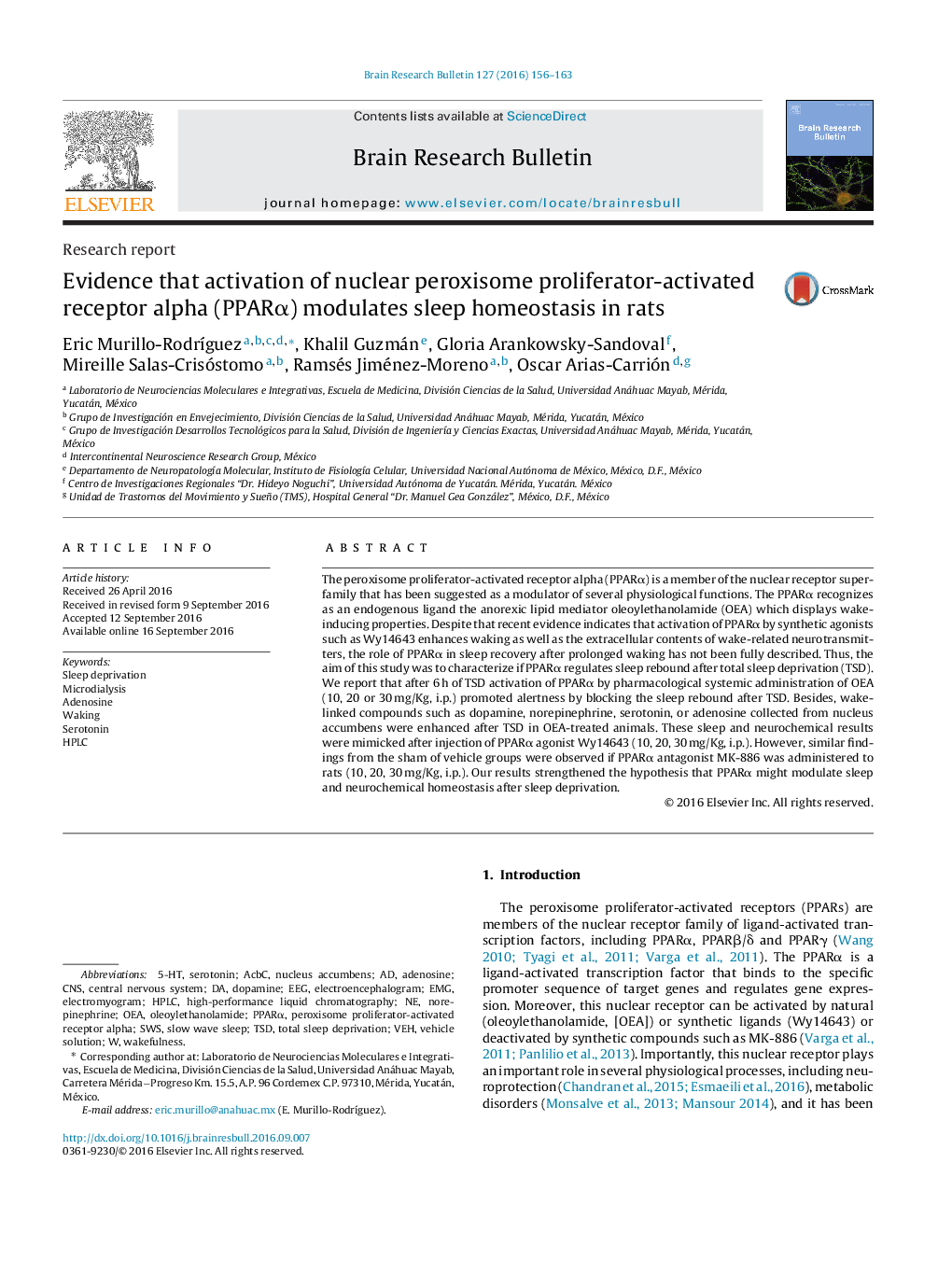| کد مقاله | کد نشریه | سال انتشار | مقاله انگلیسی | نسخه تمام متن |
|---|---|---|---|---|
| 4318587 | 1613230 | 2016 | 8 صفحه PDF | دانلود رایگان |

• Oleoylethanolamide blocked the sleep rebound after total sleep deprivation.
• Wy14643 increased wake-promoting compounds after total sleep deprivation.
• MK-886 did not modify sleep or neurochemical contents after total sleep deprivation.
The peroxisome proliferator-activated receptor alpha (PPARα) is a member of the nuclear receptor superfamily that has been suggested as a modulator of several physiological functions. The PPARα recognizes as an endogenous ligand the anorexic lipid mediator oleoylethanolamide (OEA) which displays wake-inducing properties. Despite that recent evidence indicates that activation of PPARα by synthetic agonists such as Wy14643 enhances waking as well as the extracellular contents of wake-related neurotransmitters, the role of PPARα in sleep recovery after prolonged waking has not been fully described. Thus, the aim of this study was to characterize if PPARα regulates sleep rebound after total sleep deprivation (TSD). We report that after 6 h of TSD activation of PPARα by pharmacological systemic administration of OEA (10, 20 or 30 mg/Kg, i.p.) promoted alertness by blocking the sleep rebound after TSD. Besides, wake-linked compounds such as dopamine, norepinephrine, serotonin, or adenosine collected from nucleus accumbens were enhanced after TSD in OEA-treated animals. These sleep and neurochemical results were mimicked after injection of PPARα agonist Wy14643 (10, 20, 30 mg/Kg, i.p.). However, similar findings from the sham of vehicle groups were observed if PPARα antagonist MK-886 was administered to rats (10, 20, 30 mg/Kg, i.p.). Our results strengthened the hypothesis that PPARα might modulate sleep and neurochemical homeostasis after sleep deprivation.
Figure optionsDownload as PowerPoint slide
Journal: Brain Research Bulletin - Volume 127, October 2016, Pages 156–163